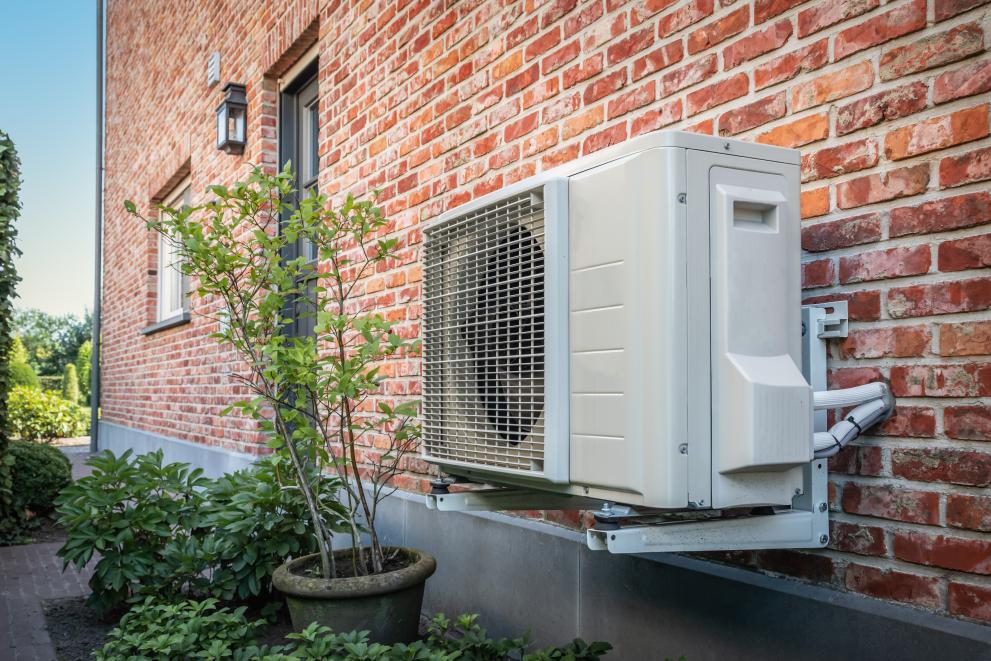
Energy consumption in buildings accounts for almost 40% of final energy consumption and 36% of energy-related greenhouse gas (GHG) emissions in the EU. In 2021, households represented 27% of final energy consumption in the EU, while residential space heating accounted for 18%. No wonder energy saving and emission reduction in the sector are high on the climate agenda.
Heat pumps emit less GHG and offer higher efficiency than traditional boilers that run on gas or oil, thus usually reducing heating bills. The JRC report The Heat Pump Wave: Opportunities and Challenges looks into the potential impact of manufacturing and installing heat pumps on a large scale.
It concludes that while there are barriers, overall, the switch from fossil fuel boilers to heat pumps, powered by electricity, will not only be healthier for planet, but it will strengthen EU energy security and usually lower heating bills. The need for rapid uptake of heat pumps for residential heating will require a pool of skilled installers and technicians, presenting the opportunity for the creation of new jobs and at the same time the challenge of ensuring sufficient number of skilled professionals.
The European Heat Pump Association estimates that 500 000 additional skilled workers are needed by 2030, whereas the European Heating Industry estimates it to be 750 000 new jobs.
EU’s buildings and heat pumps market
The EU aims to cut the use of fossil fuels as well as its reliance on Russian oil supply before 2030, in line with the REPowerEU action plan. Central to the EU’s climate policies designed to achieve this goal is the need to improve the energy performance of heating in buildings, given their high share in energy consumption and GHG emissions. Europe’s buildings are in many cases old and inefficient: 40% of the EU buildings stock was built before 1960 and 90% before 1990, thus prior to the implementation of EU energy efficiency legislation.
In 2021, heat pumps accounted for a market share of 21.5% of all domestic individual heating systems use for space heating systems, although unevenly distributed among EU countries. Finland had a market share of 97%, while Germany and the Netherlands a mere 16% and 13% respectively.
The analysis indicates that the additional strain on power grids due to the increased electricity demand in terms of electricity generation mix and power prices will be relatively moderate and can be further mitigated with the integration of smart controls.
Considering that there are approximately 68 million gas and 18 million oil boilers in residential buildings in the EU, a rapid scale-up of heat pumps is necessary, but it does present some challenges. Replacing 30 million of the total of 86 million residential fossil fuel boilers with heat pumps could cut the final energy consumption of those households by 36% and their CO2 emissions by 28%.
The ambitious target also presents an opportunity for the European heat pump industry. The industry is well-established and innovative, world leader in several heat pump segments. However, it remains to be seen whether the European industry can scale up quickly enough to meet the demand. The EU currently holds a strong position in innovation, but efforts are needed to maintain this edge, especially as value creation increasingly moves to digitalisation and system integration. Also, the competition, particularly from China, is growing.
The EU’s heat pump supply chain is still vulnerable in few areas, including a large dependence on imported compressors and semi-conductors. There is also lack of skilled installers and service technicians, required to evaluate the type of installation and its feasibility, and substantial upfront costs could be unaffordable for low-income households. Moreover, the phase out of fluorinated gases (F-gases), powerful greenhouse gases used as cooling agents, needs to be accomplished in the short term to avoid any additional direct emissions from the new installed heat pumps.
Heat pumps are emerging as a crucial solution to achieve the EU decarbonisation targets and independence from Russia’s fossil fuels by 2030, as well as its ambition to tackle energy poverty due to lower energy bills.
To facilitate and accelerate the deployment of this technology, the European Commission is working on the Heat Pump Action Plan, which will
- strengthen partnership between the Commission, EU countries and the sector
- improve communication to all interest groups and facilitate skills partnership for rolling out heat pumps
- ensure a favourable regulatory and policy framework and accessible financing
NOTE: This article was updated on 18 July 2023 to correct figures on energy final consumption and emissions in buildings in the 1st paragraph.
Related content
Details
- Publication date
- 21 June 2023
- Author
- Joint Research Centre
- JRC portfolios




